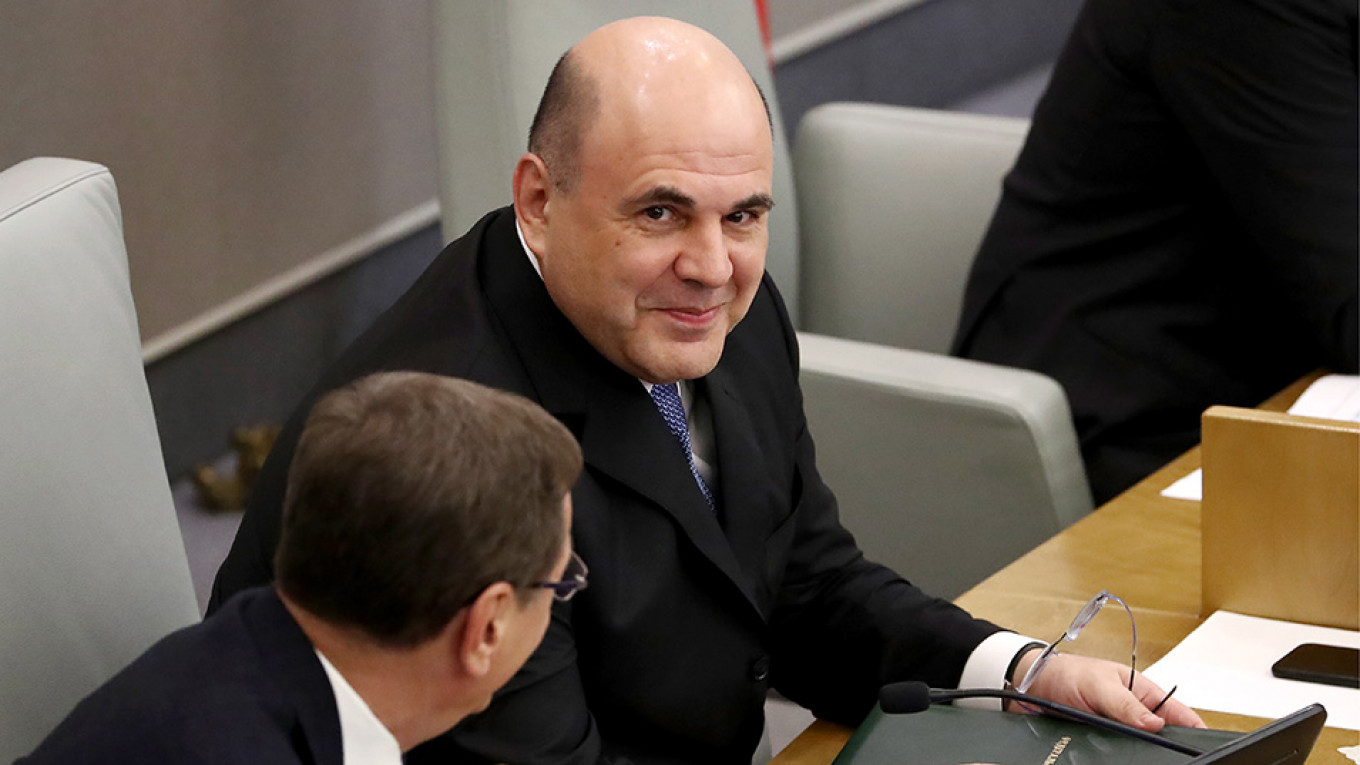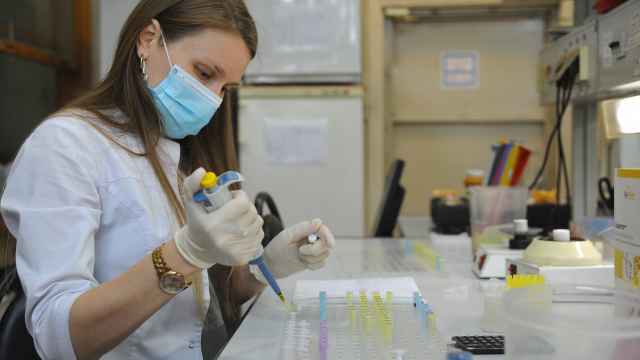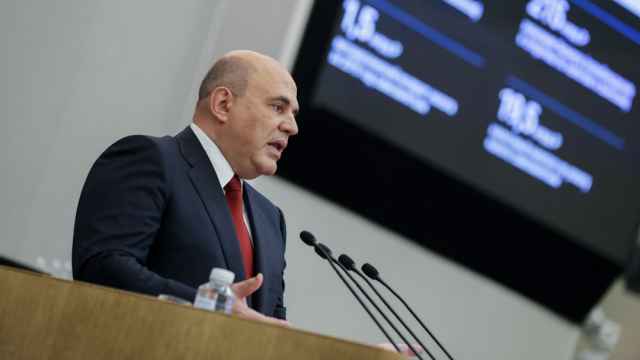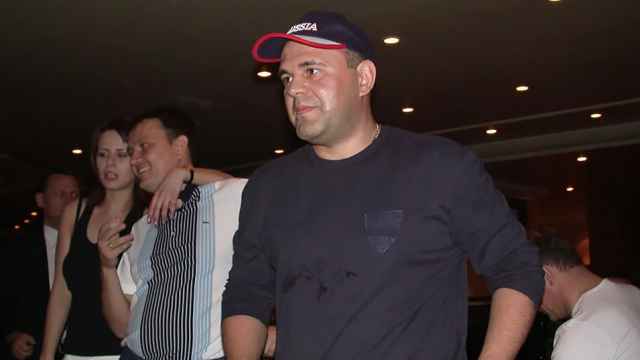After a blitz of constitutional reform proposals aimed at keeping him in power after his presidential term ends in 2024, Russia’s President Vladimir Putin named his new prime minister — a tech-obsessed tax administrator with no interest in politics. The appointment highlights the Putin system’s fundamental paradox: It is an antiquated, Byzantine, nepotistic, deeply corrupt governance model that nevertheless values and rewards technocratic brilliance.
In the Russian power succession scheme, the prime minister takes over when the president is for some reason unable to govern; Prime Minister Putin became acting president when Boris Yeltsin resigned in the final minutes of 1999. Putin waited out Dmitry Medvedev’s presidential term between 2008 and 2012 as prime minister, and Medvedev assumed the post afterwards. But there have been periods under both Yeltsin and Putin when the prime minister post wasn’t occupied by politically ambitious or important individuals; those were times when the president claimed full responsibility for Russia’s course.
Mikhail Mishustin, the newly confirmed prime minister, fits neither precedent.
He’s as apolitical as they come. The trained software engineer with a doctorate in economics has worked for the Russian Federal Tax Service since 1998, a time when the service began adopting modern administration methods. He was responsible for implementing major innovations such as individual tax numbers and digital signatures, and when he was promoted to head of the service in 2010, Mishustin’s efforts were mostly devoted toward digitization and big data. I met him in 2013 and was struck by the depth of his personal engagement with the details of the tax service’s internet user interface.
Suffice to say that at the Organization for Economic Cooperation and Development’s Forum for Tax Administration, the venue where the world’s government fiscal services share their best practices, Mishustin leads the group on digitization.
At the same time, Mishustin won’t be a mere “placeholder prime minister” comparable to the forgettable figures of the early Putin years, Mikhail Fradkov and Viktor Zubkov, who were mere conduits for their master’s will. That’s because he’s a bureaucratic superman, someone whose personal achievements are visible to every economic actor in the country, from top to bottom. Even Russia’s downtrodden small entrepreneurs don’t complain about the ease of dealing with tax officials. Thanks to the increased use of technology, Mishustin has slashed the number of dreaded on-site inspections: In 2018, it fell by 30% so a mere 0.18% of all Russian companies and private entrepreneurs had to face them.
At the same time, tax revenues from corporations and individuals are growing faster than the Russian economy, even though the statutory tax burden isn’t increasing. The International Monetary Fund noted this improvement in its most recent staff report on Russia.
Mishustin is a new kind of Russian prime minister suited to Putin’s evolving political goals. Under Medvedev, who resigned on Wednesday, the government largely failed to implement Putin’s so-called national projects — a huge public spending plan worth $400 billion until 2024. According to the Accounting Chamber, the Russian budgetary watchdog, the 13 programs that are part of the plan used only 88% of the available funding in 2019, largely because of planning problems and bureaucrats’ fear of being accused of misusing the money. The digital economy program used just 53.6% of its funding. Putin’s targets for reducing poverty, ensuring population growth and speeding up economic expansion, are growing more distant.
Putin views this as an implementation problem, rather than a consequence of overzealous and often corrupt law enforcement combined with the creeping nationalization of the economy. That’s why he picked as his new prime minister someone who enjoys a stellar reputation both within the bureaucracy and in the broader economy for his capacity to implement complex changes. Putin wants the national projects to show results, knowing he’ll be judged on their success.
At the same time, Putin’s constitutional reform plans show he doesn’t want to pick a personal successor just yet. The outlines of the new system, which he presented on Wednesday, indicate that he’s preparing to switch from the presidency to a role of ultimate arbiter and puppetmaster, pulling the strings either as leader of the ruling party (somewhat like Jaroslaw Kaczynski in Poland) or as head of a newly empowered State Council of regional and parliamentary leaders (similar to the role taken by Kazakhstan’s first president, Nursultan Nazarbayev, after he handed over the presidency last year). The formal government functions, such as the presidency and the premiership, will become more constrained by a system of checks and balances.
Putin wants complete control over the process of constitutional change. On Wednesday, he appointed a working group to prepare the text of the amendments, which includes figures like the nationalist author Zakhar Prilepin, actor Vladimir Mashkov and champion pole-vaulter Yelena Isinbayeva; it’s clear that they’re there to rubber-stamp the Kremlin’s ideas rather than come up with their own.
Putin wants elites focused on smoothing his transition from almost unlimited formal power to a less clearly defined, but no less powerful role. Promoting ambitious political figures — for example, Moscow Mayor Sergei Sobyanin or Defense Minister Sergei Shoigu — would hamper this plan. At the same time, Putin doesn’t want to spend much time worrying about the day-to-day work on his economic program. Hence Mishustin’s promotion.
If the supremely competent tax boss has enough of a free hand, Russia’s economic governance, technocratically sound even today, will continue decoupling from the country’s politics, which are backsliding rapidly into the Soviet era with increased repression and lack of accountability. This duality, however, makes it difficult even for someone with Mishustin’s gifts to achieve ambitious goals. As Putin works to weaken formal institutions and put courts under more political control (one of his constitutional proposals is to let the president fire judges for misbehavior), modernizing the economy may become window-dressing. It’s harder to stimulate growth in the absence of adequate property protections and competition than it is to excel at collecting taxes.
A Message from The Moscow Times:
Dear readers,
We are facing unprecedented challenges. Russia's Prosecutor General's Office has designated The Moscow Times as an "undesirable" organization, criminalizing our work and putting our staff at risk of prosecution. This follows our earlier unjust labeling as a "foreign agent."
These actions are direct attempts to silence independent journalism in Russia. The authorities claim our work "discredits the decisions of the Russian leadership." We see things differently: we strive to provide accurate, unbiased reporting on Russia.
We, the journalists of The Moscow Times, refuse to be silenced. But to continue our work, we need your help.
Your support, no matter how small, makes a world of difference. If you can, please support us monthly starting from just $2. It's quick to set up, and every contribution makes a significant impact.
By supporting The Moscow Times, you're defending open, independent journalism in the face of repression. Thank you for standing with us.
Remind me later.








